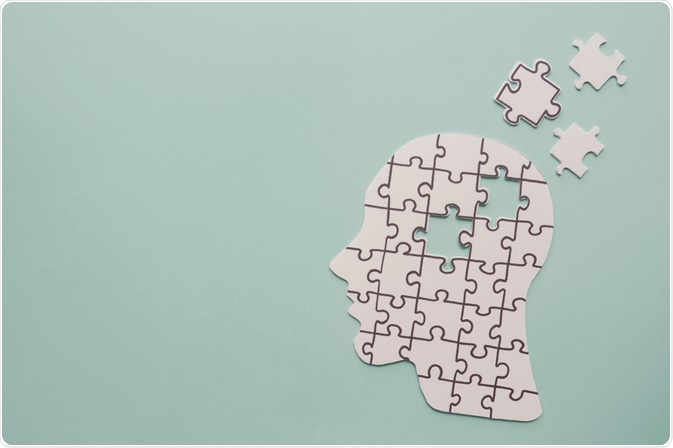The diagnosis of schizophrenia can be challenging, as there is no specific test that will definitively determine if schizophrenia is responsible for the symptoms experienced by the patient. In addition, some patients may try to hide their symptoms and are unlikely to report the condition themselves, leading to bystanders or loved ones reporting the condition to a medical professional.
If schizophrenia is suspected, the patient should be referred to a psychiatrist for help in diagnosing and treating the condition.

Image Credit: SewCream / Shutterstock.com
Medical history
A thorough medical history is the first step in the diagnosis of schizophrenia. This should include a description of the symptoms that have led to the belief that schizophrenia may be involved, as well as a history of the patient's medical events.
It is important to establish a family history of psychological disorders such as schizophrenia, as there appears to be a genetic link in the development of the condition. This is not always the case; however, an individual with a family history of schizophrenia is more likely to be affected.
In addition, it is worthwhile to question the birth and infancy of the individual. Premature babies born with a low birth weight, or those with complications or infections at birth, are more likely to be susceptible to the development of schizophrenia.
Another important point of reference is the life circumstances leading up to the time when the symptoms of schizophrenia emerged. In most cases, a particularly stressful or emotional event has caused susceptible individuals to become affected.
When taking the patient's medical history, it is important to also discuss the signs and symptoms with the family and friends of the individual, as patients may be unwilling to describe their symptoms accurately and try to hide clinically relevant events or aspects of their health.
How Schizophrenia Is Diagnosed | Schizophrenia
Blood tests and imaging
If schizophrenia is suspected, a complete blood count (CBC) test is helpful to monitor the general health of the patient and rule out other conditions that may have been responsible for their symptoms. In particular, signs of drug overuse can sometimes be confused with schizophrenia symptoms. A blood test can provide accurate information about the involvement of recreational drugs.
In some cases, certain imaging techniques such as magnetic resonance imaging (MRI) or computed tomography (CT) scan may aid in the diagnosis.
Psychological tests
The mental status of the individual can be evaluated with the consideration of various factors, including the appearance, demeanor, thought processes, mood, and awareness of the individual. Special care should taken if there may be potential for violence or suicide by the individual.
Psychological tests can help to differentiate schizophrenia from other related mental health disorders and general substance abuse.
A person may be diagnosed with schizophrenia if they have at least two of the following symptoms, usually over a month, and some disturbance over a longer time frame of six months:
- Delusions
- Hallucinations
- Disorganized speech and thought processes
- Disorganized behavior
- Catatonic behavior, presenting as strong daze or hyperactivity
- Negative symptoms
- Impaired normal function
An individual must experience at least one form of delusions, hallucination, or disorganized speech in order to be diagnosed with schizophrenia.
People with this disorder tend to be unwilling or unable to attend school or work and perform daily tasks as normal. This can also be used as an indicative factor in the diagnosis of the condition, but it should be noted that other health conditions may display similar signs.
References
Further Reading
Last Updated: Apr 30, 2021